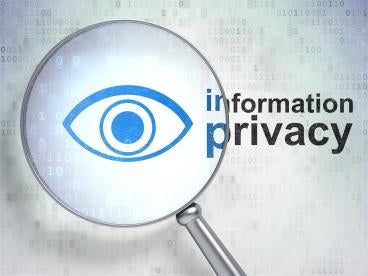The French Supreme Court recently ruled that an employer could not rely on the report of a private detective it had hired to spy on one of its employees to obtain an injunction against him because this was a breach of the employee’s privacy and that could not be justified, however legitimate were its concerns.
Numerix Radiologie suspected Mr. X of unfair competition during his working time (he was working from home). It hired a detective for a week or so to follow the employee when he left his home. This allowed it to confirm its suspicions. The employer then applied to the civil court for an Order against Mr. X to secure evidence in anticipation of future judicial proceedings against him, as allowed by the French civil procedure rules. To demonstrate its reason for seeking the Order to secure the evidence, Numerix Radiologie produced the report from the detective.
The first instance Court accepted that the employer had legitimate reasons to secure evidence but on appeal the employee disputed the validity of the Order on the ground that Numerix Radiologie had breached his right to a private life as protected by Article 9 of the French Civil Code and Article 8 of the European Convention on Human Rights.
The Supreme Court ruled that the first instance Court should have rejected the employer’s application because it had relied on unlawfully obtained evidence to sustain it (i.e. the report from the detective). It was immaterial to this that the report clearly showed the employee to be in breach of his obligations to Numerix and that he could now potentially destroy evidence of that guilt before a trial on the issue.
This decision is consistent with earlier case law of the French Supreme Court, which declares inadmissible any evidence collected by employers through covert surveillance of employees, whether the spying is done by someone hired by the employer or by the employer itself, on the ground that it breaches the employee’s privacy rights. More generally, the Supreme Court also usually rejects as inadmissible any other evidence that has been collected through clandestine means (i.e. without the employee having been informed of the control/surveillance methods) with the consequence that an employee’s dismissal based on that evidence will be deemed automatically unfair, almost however guilty of the misconduct in question he may actually be.
This case law is harsh on employers as it can then be difficult in practice to prove an employee’s wrongdoing, especially when the employee is working from home. Employers should ideally rely on other methods of collecting evidence that have been approved by case law, for example control by the employer of the activity of its employees, evidence collected by an internal department within the company, control of the files in the employee’s professional computer (subject to the employee being present if he has identified some of these files as private, etc.).
Note the point above concerning the employee having been informed in advance about the extent to which his activities are being monitored – the more clearly this is explained to him, the less likely is the Court to find that that surveillance is an unlawful interference with his privacy and so the stronger is the employer’s position. Against that, it is hard to imagine that many employment contracts would include an express right for the employer to keep the employee under surveillance by a detective!




 i
i


